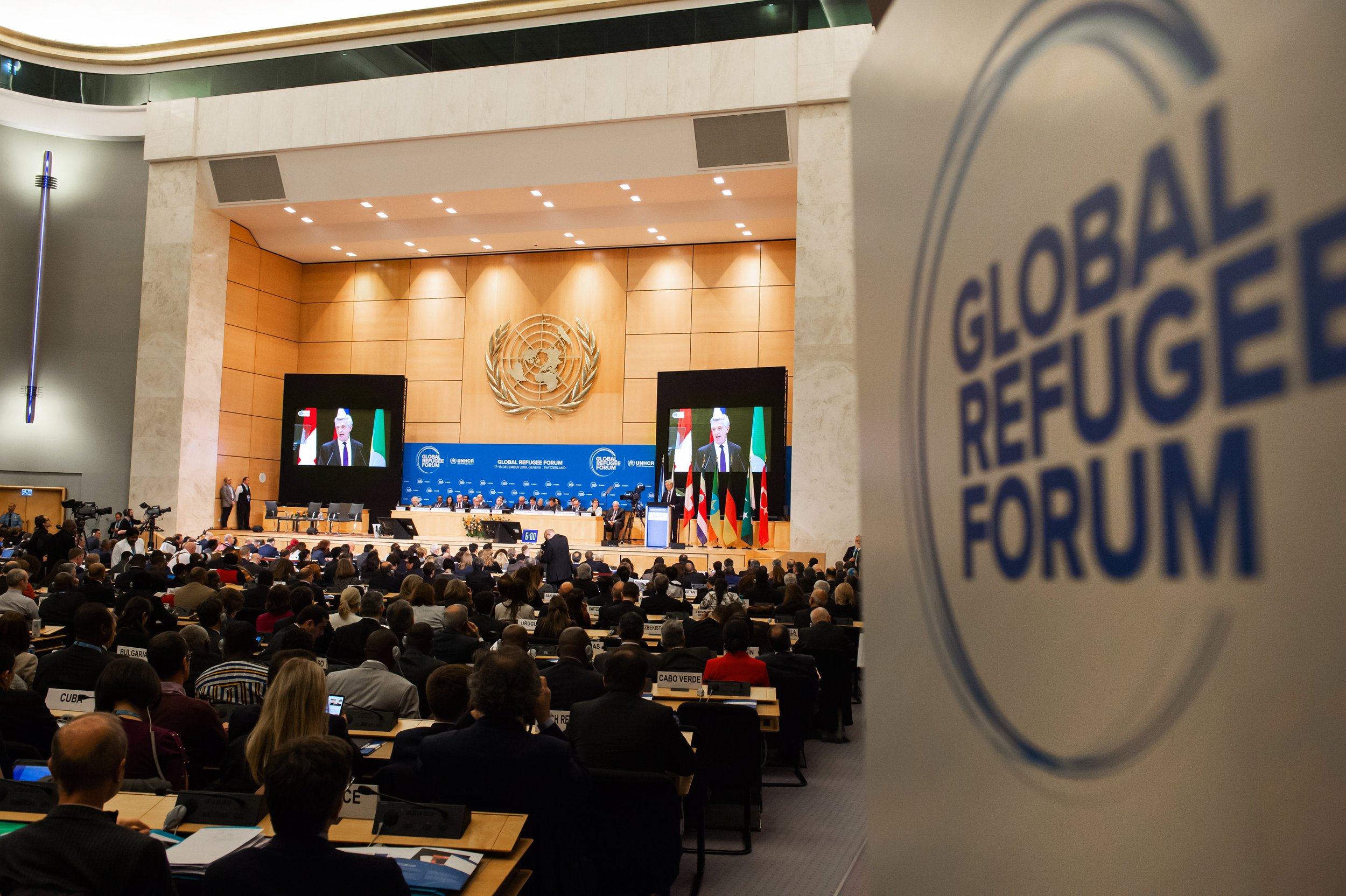About the Support Platform
Afghanistan, Iran and Pakistan were among the first Member States at the United Nations General Assembly in December 2018 to affirm the Global Compact on Refugees (GCR), a landmark effort to build a framework for action on refugees based on the fundamental principles of humanity and international solidarity. The Global Compact laid out the task of making international burden- and responsibility-sharing for refugees a living reality to ensure better protection and assistance, and to boost support for host countries and communities, while building on solutions.
The compact sets out arrangements to ensure that both refugees and their host communities benefit from this support. A central arrangement is the Global Refugee Forum (GRF) where States and other actors come together every four years to share good practices and contribute with financial support, technical expertise and policy changes to help reach the goals of the Global Compact. These contributions are key to transforming the aspirations of the compact into positive changes in the lives of refugees. The first two GRFs took place in 2019 and 2023 and were true milestones in building solidarity with the world’s refugees and the countries and communities that host them.

As a framework for engagement by the international community, the GCR makes it possible for host countries and countries of origin to activate a “support platform” mechanism to help them galvanize action around large-scale and protracted refugee situations. This approach ensures a broadened base of support that includes not just States, but other actors who are critical to a comprehensive response such as development partners, civil society, academia, the private sector, among others.
A new Support Platform for the Solutions Strategy for Afghan Refugees was established in the year following the GCR’s adoption in 2019 by Afghanistan, Iran, and Pakistan in order to draw on stronger international political and financial commitments to achieve solutions for Afghan refugees, in line with the GCR’s objectives.
In host countries like Iran and Pakistan, the Platform seeks to increase support for national public services to aid efforts to include refugees in community-level systems. Supporting refugees and building their human capital also underpins all solutions and enhances self-reliance among refugees to improve their lives in the countries where they currently reside. Ultimately, support for host countries helps build a protective environment for refugees, alleviates pressure on local systems, and strengthens refugees’ eventual prospects for return and reintegration at home.
Investments and expanded partnerships are critical for the Support Platform to succeed. Alongside this, coherent humanitarian and development responses that seek to increase the absorption capacity inside Afghanistan for returnees are equally critical by providing the kinds of services that are needed for sustainable reintegration, including schools, health facilities, and investments in livelihoods.
In 2020, the Platform was further strengthened by the formal establishment of a Core Group for the Support Platform. The Core Group comprises a group of States and institutions which are committed to demonstrating their solidarity with the Afghan refugee situation and intend to make concrete commitments to the initiative and its aims.
UNHCR acts as a Secretariat for the Support Platform. The Support Platform meets bi-annually at the ministerial level, with technical meetings happening more regularly.
The SSAR covers Afghanistan, Iran and Pakistan
Afghanistan
Some 23.7 million people in need of humanitarian and protection assistance ...
More info on AfghanistanIran
Today, Iran hosts 750,000 registered Afghan refugees, shouldering a large share of the collective...
More info on IranPakistan
Today, Pakistan hosts almost 1.3 million registered Afghan refugees, shouldering a large share...
More info on Pakistan